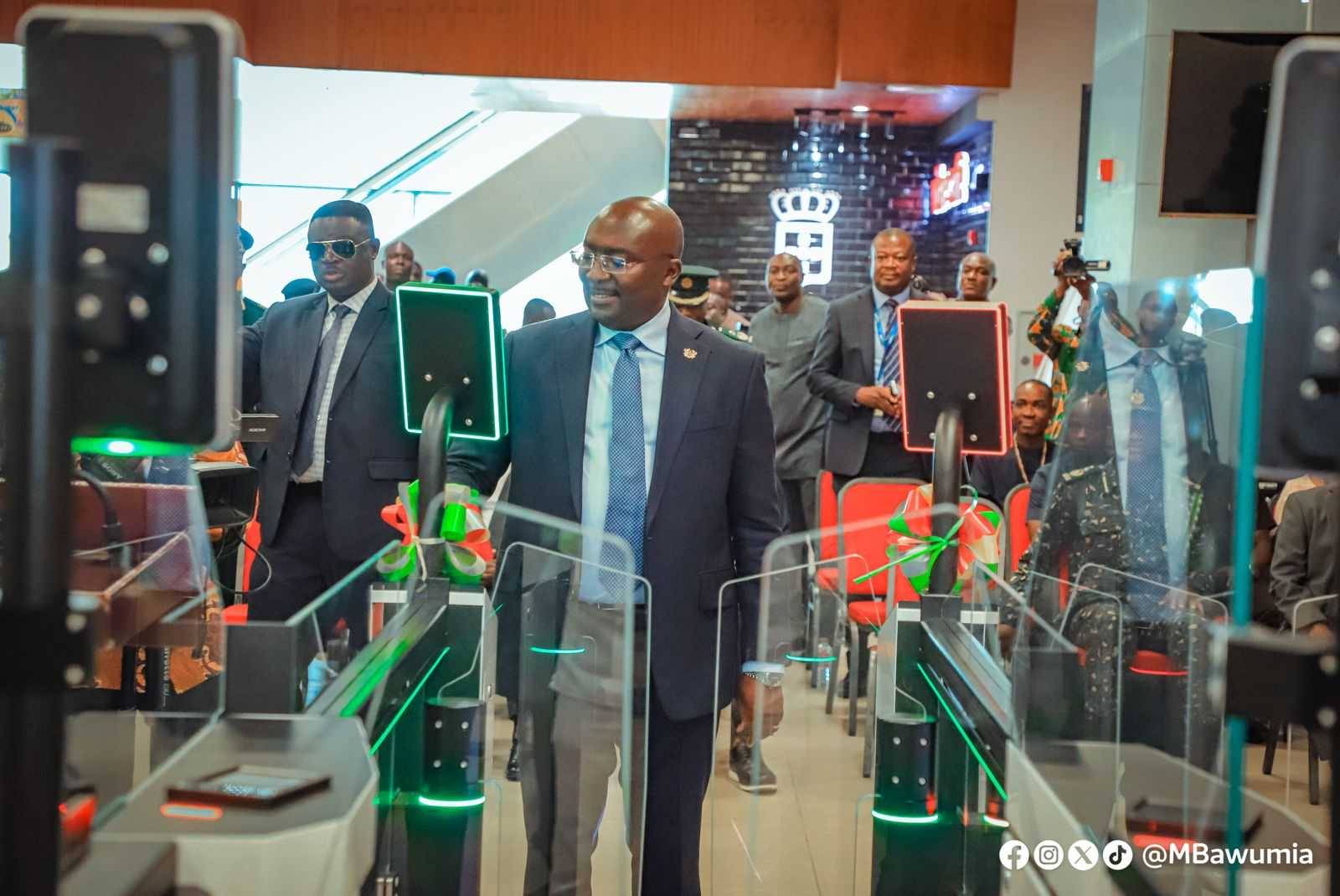A shocking investigation has revealed widespread corruption, waste, and a staggering $240 million deal awarded to politically connected contractors for the e-Gate system launched at Kotoka International Airport by Ghana's Vice President, Dr. Mahamudu Bawumia.
According to sources, the $240 million deal was awarded to contractors with close ties to the government, despite concerns about their qualifications and experience.
Here is the full breakdown:
Ghana’s e-Immigration system, was originally funded by ~$20M of World Bank money, & was designed to modernize border management with biometric e-Gates & secure databases.
By 2020, the system was reportedly delivered by French IT giant Thales. So, what went wrong?
Here is how the World Bank, writing in April 2020, described progress:
Despite millions spent, NONE of the systems funded by the World Bank are operational today.
Instead, politically connected contractors have reportedly pushed for a $240M privatized intervention under the guise of “upgrading†the system.
At the center of this saga is Margins Group, the same company managing Ghana’s controversial National ID system.
They allegedly used political influence to undermine an existing contractor, Securiport, to gain control of the e-Immigration rollout.
How is the deal being funded? The Veep’s office allegedly proposed imposing a $11 tax on air travelers to finance the project.
When this was met with resistance, they allegedly suggested siphoning funds from Ghana Immigration Services and the Airport Company of which sources say is an “outrageous†move that risks privatizing Ghana’s immigration system, draining vital resources, and undermining national security.
The project design was finalized and officially approved in the Vice President's office. Below is a detailed breakdown of the project's design:
The $240M project’s price tag is a stark contrast to the ~$20M World Bank funding already spent on the same features. Why pay 12x more for something allegedly already delivered?
Investigators claim the e-Gate launch was merely a spectacle to justify this deal, bypassing parliamentary scrutiny, and rushing contracts before the current administration leaves office.
In short, Ghana’s e-Gate system has been hijacked by corruption, turning a $20M modernization project into a $240M cash cow for well-connected contractors.
So clearly, this isn’t just mismanagement—it’s a pattern. Donor-funded projects like this often fail due to systemic governance issues and political interference, leaving Ghana worse off.




No comments yet
Be the first to share your thoughts!